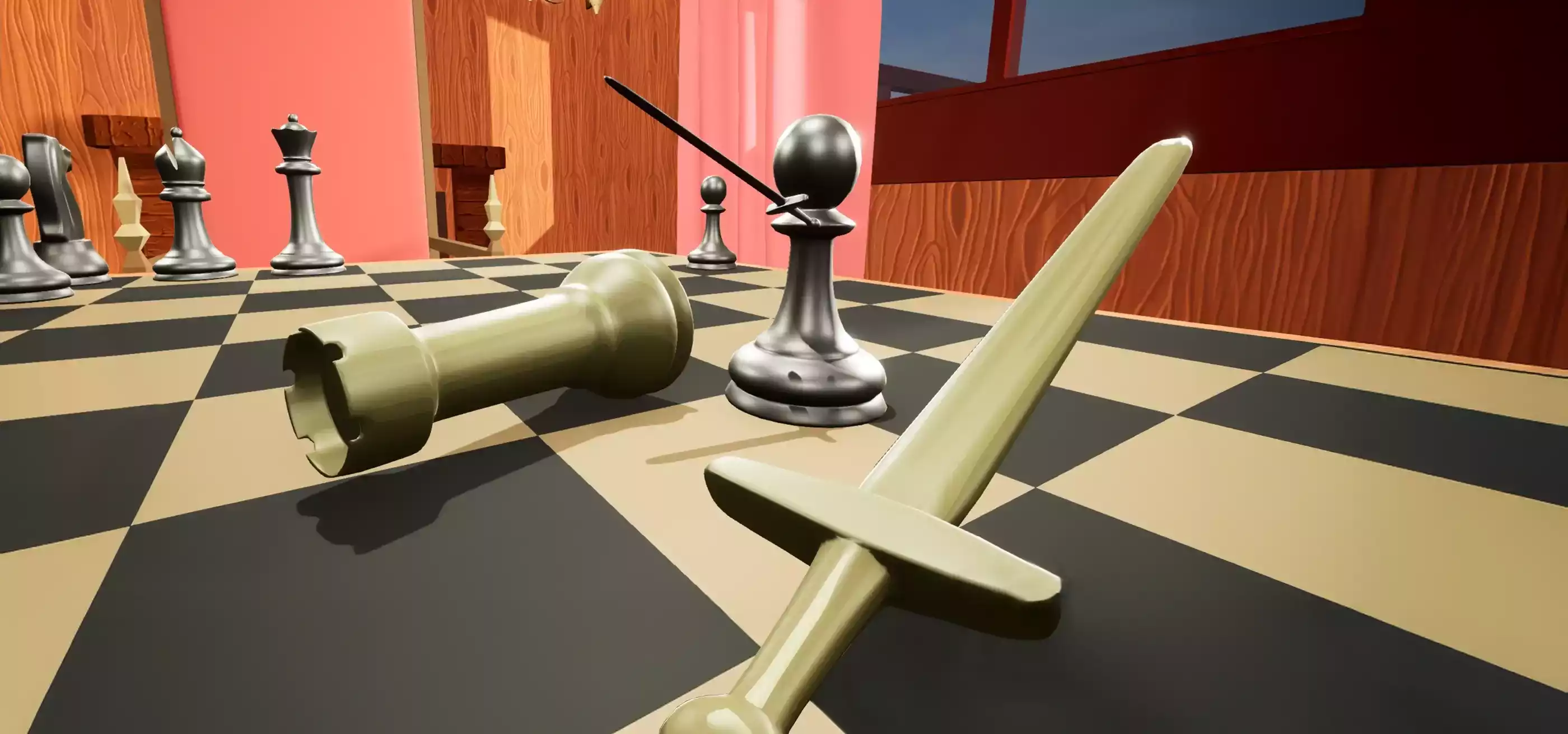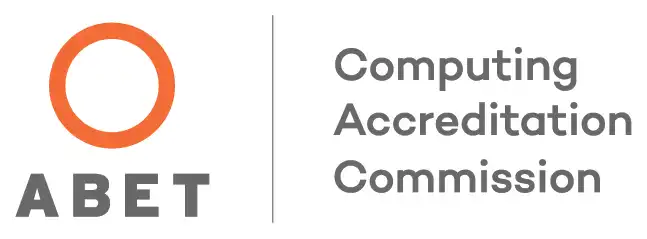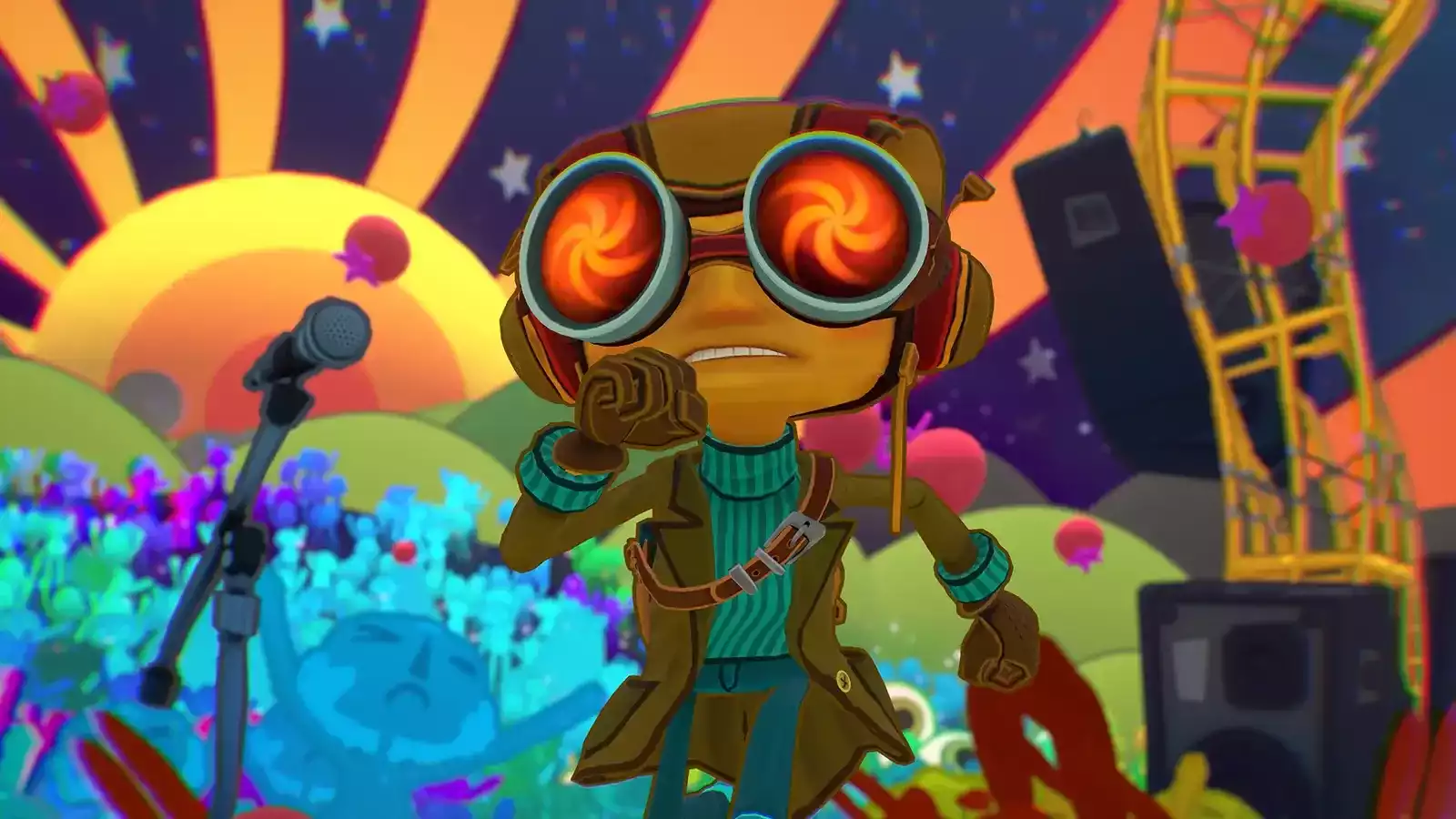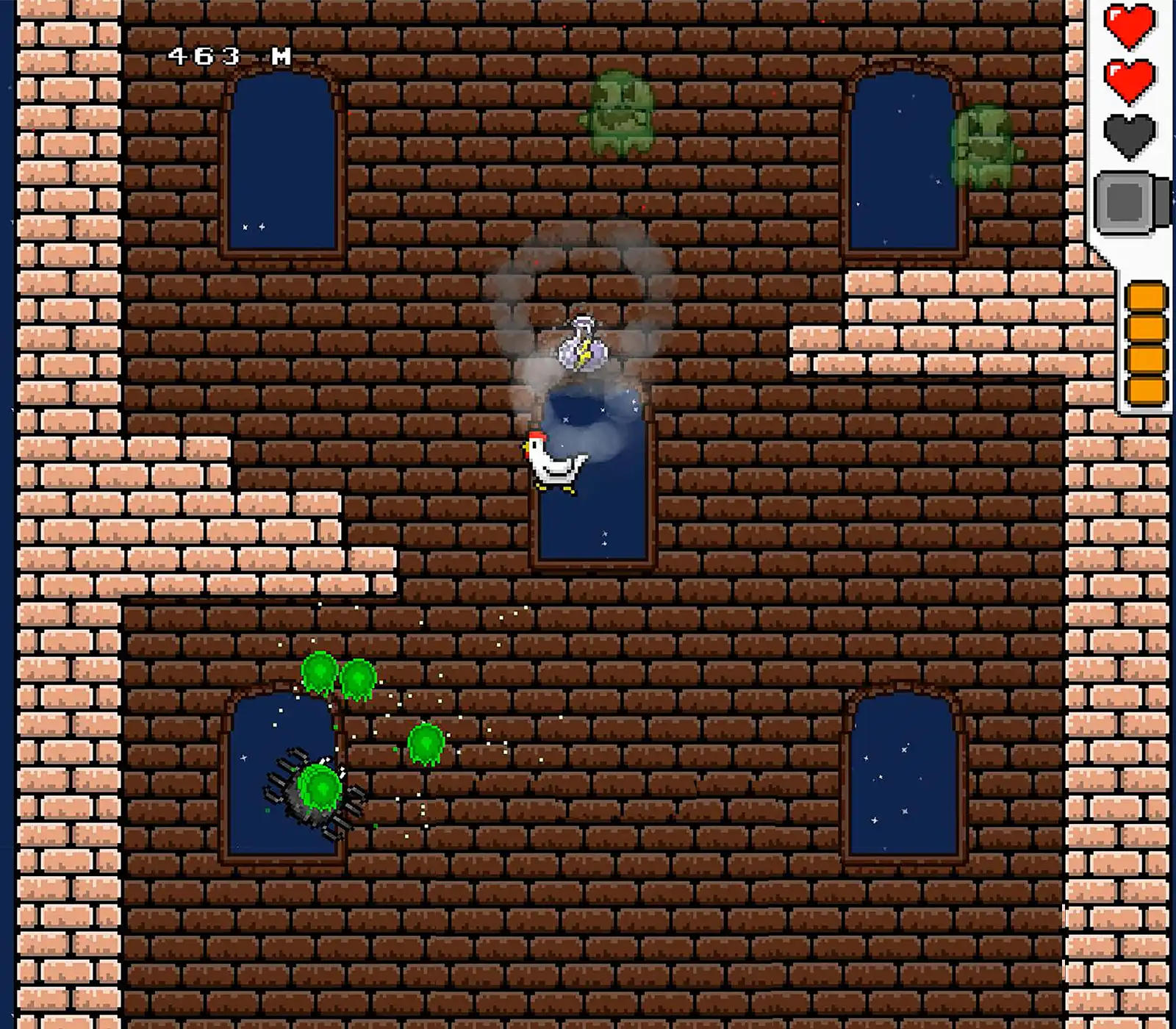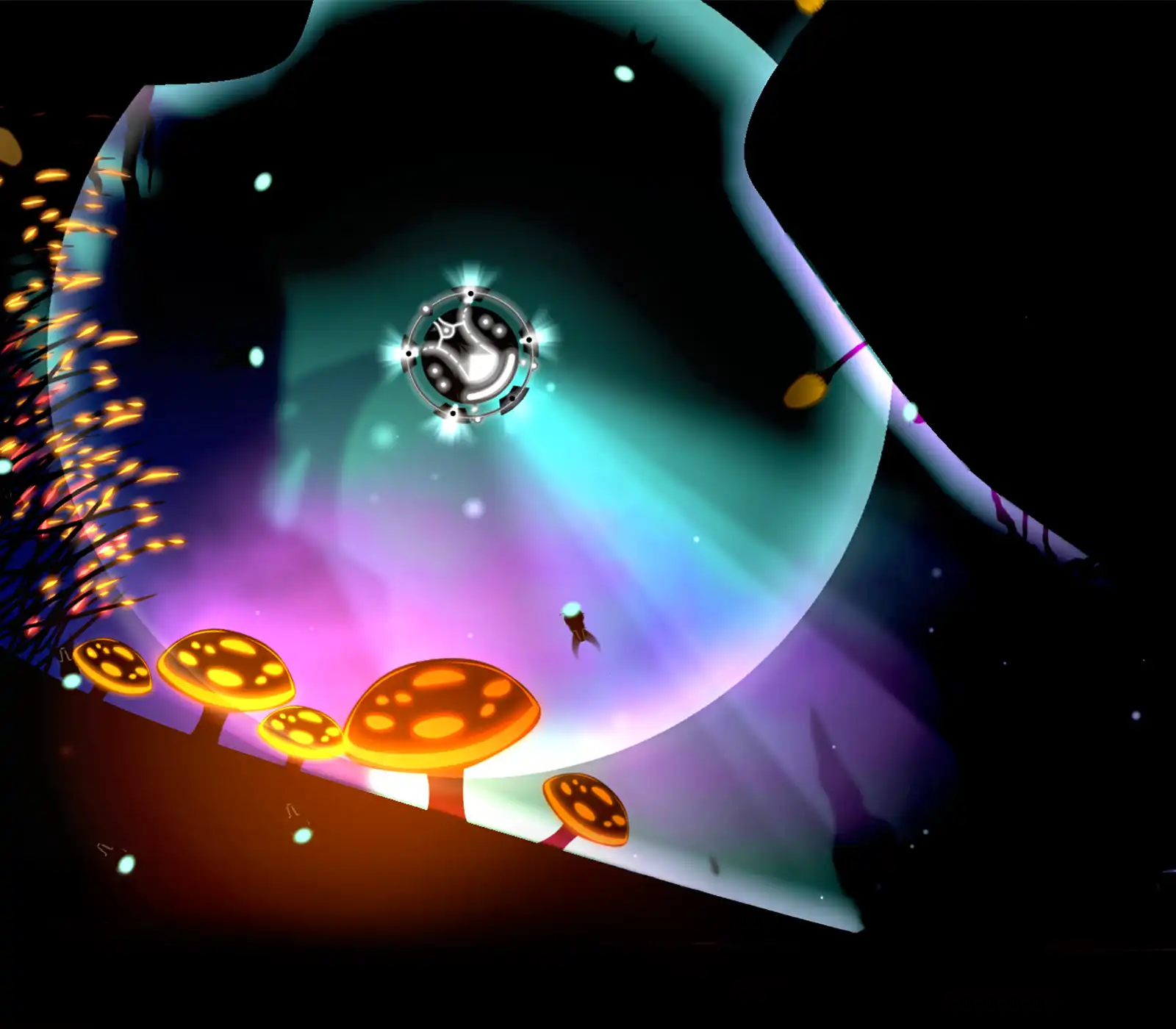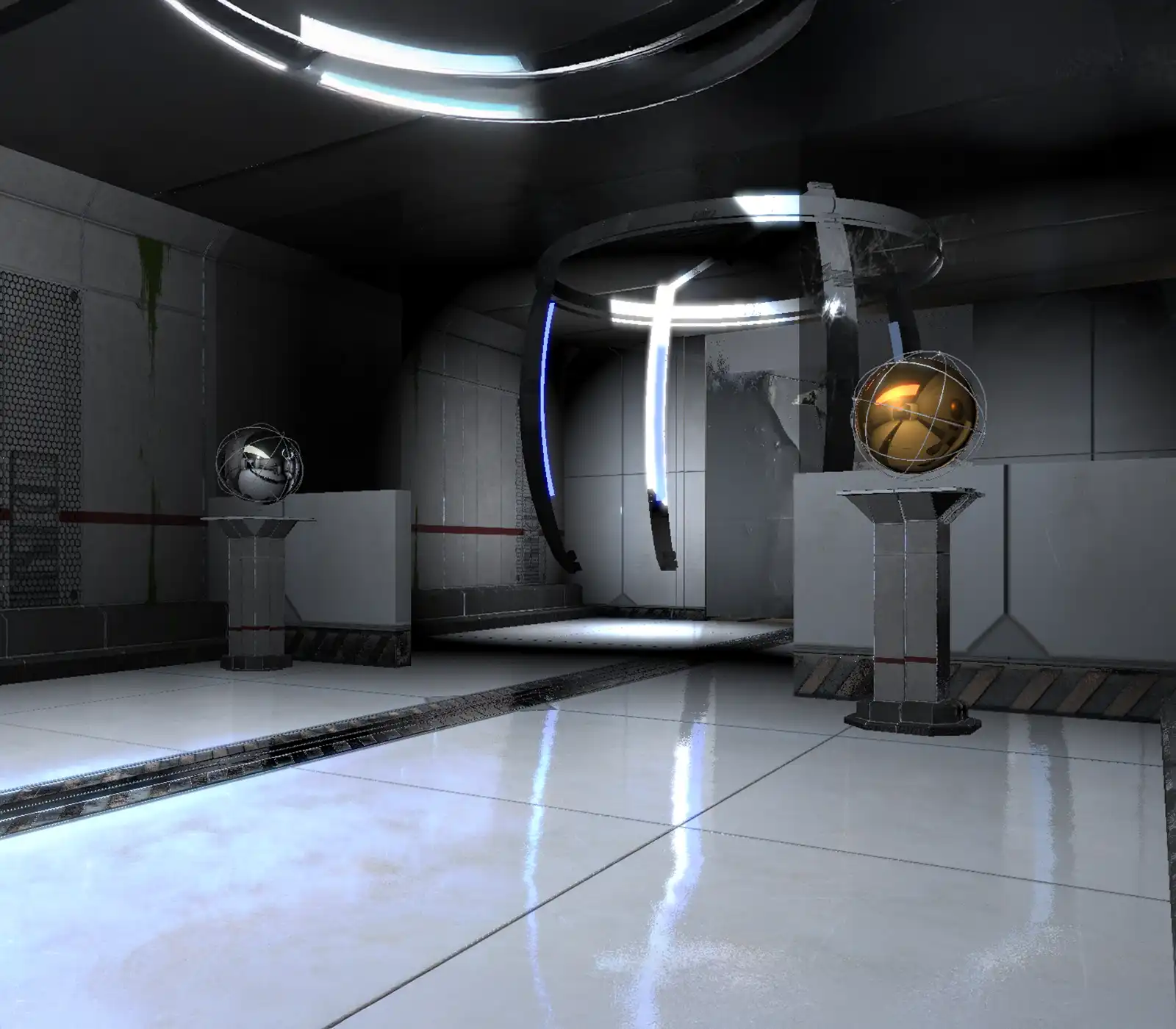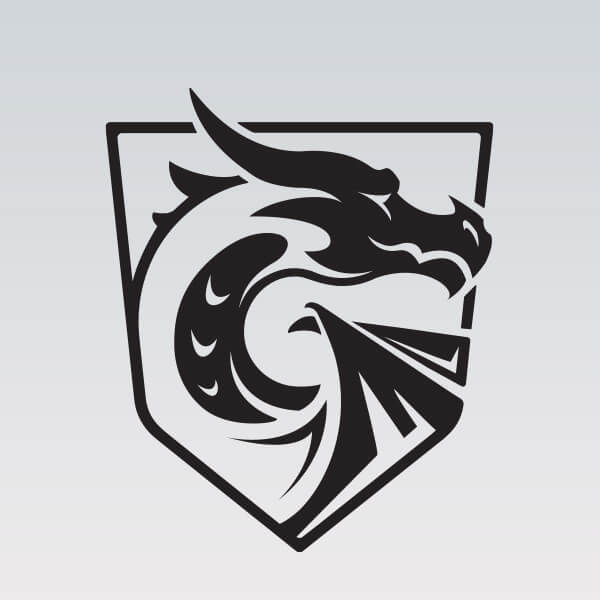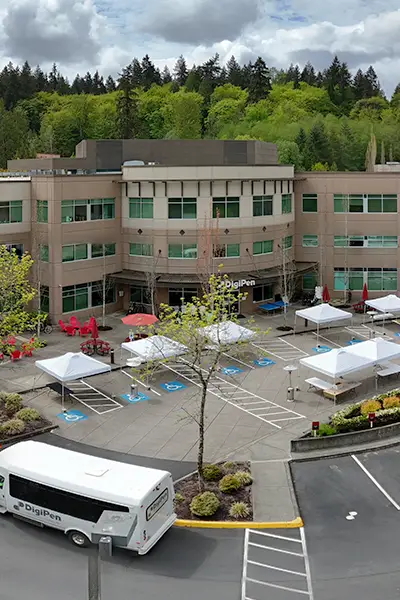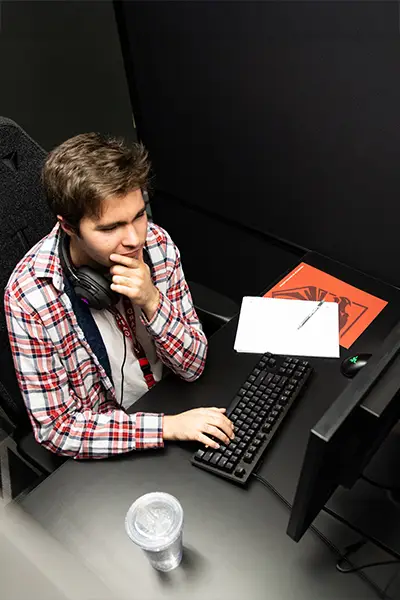More than ever, video game development serves as a powerful tool to learn how to code and program the tech of today’s world. By taking video games and breaking them down to their most foundational elements, our game programming degree challenges you to work within complex software systems in a team-based environment to help you grow your software developer skills and succeed in the modern workplace.
ABET Accredited Program!
The BS in Computer Science in Real-Time Interactive Simulation degree program is accredited by the Computing Accreditation Commission of the Accreditation Board of Engineering and Technology.
The Bachelor of Science in Computer Science in Real-Time Interactive Simulation is DigiPen’s flagship program — and for good reason. Serving as both an entry point for new programmers and a next step for more experienced coders, our four-year undergraduate programming degree takes you through the fundamentals of C, C++, and other lower-level programming languages before tasking you with building and optimizing your very own game engines with a focus on computer graphics. Each year you’ll take on the role of game developer by joining an interdisciplinary team to create a fully playable game from start to finish. As your core skills advance throughout the program, you’ll sharpen your focus on the type of programmer you want to be — whether it’s focused on physics, networking, code optimization, artificial intelligence, or many other fields — and start shaping your career before you even graduate.
Careers in programming are more important than ever, and an education focused on understanding low‑level programming and building game engines is not only very valuable for the game industry, but a highly applicable skill for the tech industry at large.”

Pushpak Karnick, Ph.D.
Program Director
A Byte-Sized Program Breakdown
Study All Things Programming
Designed to help you make great games and cool tech with a focus on engines and graphics, even if you are new to computer science.
Collaborate Across Disciplines
Built around yearly game projects where your technical role on each team provides the backbone that powers every aspect of your game.
Learn From Seasoned Pros
Engage with experienced faculty from across the game industry and build connections with local companies like Microsoft, Nintendo, and more.
Excel in Your Career Path
Focuses on the nuts and bolts of game development that will prepare you for careers in game programming, engineering, and more.
Invest in Your Future Career
Guides you into relevant industries where regional software developers in Washington make an annual mean wage of $175,600.*
*Annual mean wage in Washington state as of May 2024. Source: www.bls.gov
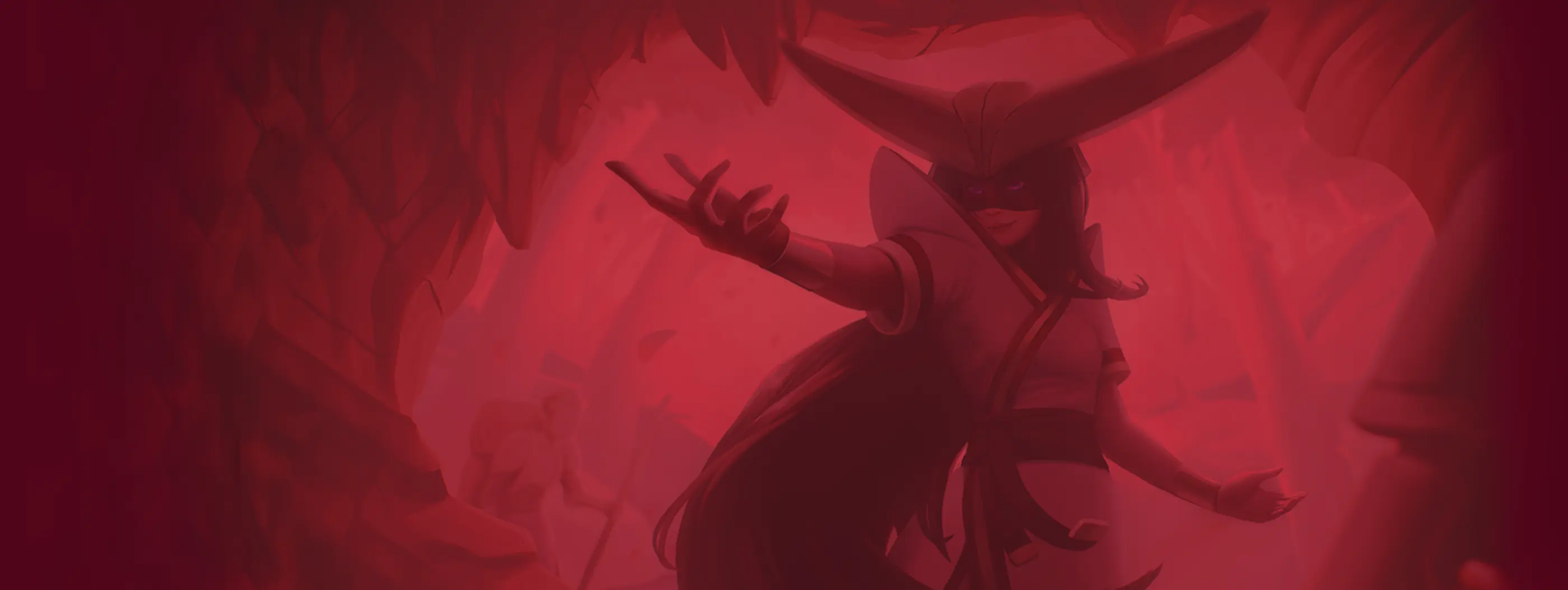
Alumni Highlights
Turn your passion into your career.
No matter how you slice it, DigiPen graduates go far. Through our comprehensive courses and project‑focused methodology, our graduates enter the industry ready to start programming games alongside a top‑notch network of developers and creatives.
Current students connect with top industry professionals through exclusive events hosted by DigiPen’s Career and Alumni Relations department.
- Networking Mixers
- Industry Company Days
- Reverse Career Fairs
- Internship Support
- Course Audits for Alumni
A sample of entry-level game programming jobs and tech roles our graduates have landed that kick off their professions.
- Software Engineer
- Gameplay Programmer
- Technical Designer
- Engine and Tools Programmer
- Computer Graphics Engineer
Our graduates shape the next generation of games and tech at major influential companies, close-knit indie studios, and their own passionate ventures.
- Epic Games
- Google
- Insomniac Games
- HBO
- Gearbox Software
- Electronic Arts


Working together is crucial, and so the project management, teamwork, and soft skills I developed with my game team over the years at DigPen are essential to my daily work today.

Eduardo Righi Chaves
Degree Program Alum
Having worked on custom engine projects at DigiPen, if we had problems with Unreal at Double Fine, I understood the lower-level workings, so I could go in and help direct the solution once actual engine programmers came to help.

Juli Gregg
Degree Program Alum
Because games are so difficult to make, I got an absolutely stellar education. Dealing with things like memory management and the sub-second timing of things — that’s an invaluable experience that can prepare you for a lot of different domains within computer science.

Andrew Macedonia
Degree Program Alum
I believe [attending DigiPen] sped my career progression up considerably, where I was able to zip right through quite a few promotions at a much more rapid pace than people who didn’t go to a place like DigiPen.

Jeff Keely
Degree Program Alum
Understanding the math, 3D transformations, how shaders work — once you get those from DigiPen, it’s easy no matter where you go.

Roman Timurson
Degree Program Alum
Student Teams
Skills aren’t formed through books and lectures alone.
It’s a yearly endeavor — students form teams and collaborate to complete an original video game from start to finish. Every member of the team brings a unique perspective to the game project, and your newfound expertise from your degree program can secure you a relevant role within your team.
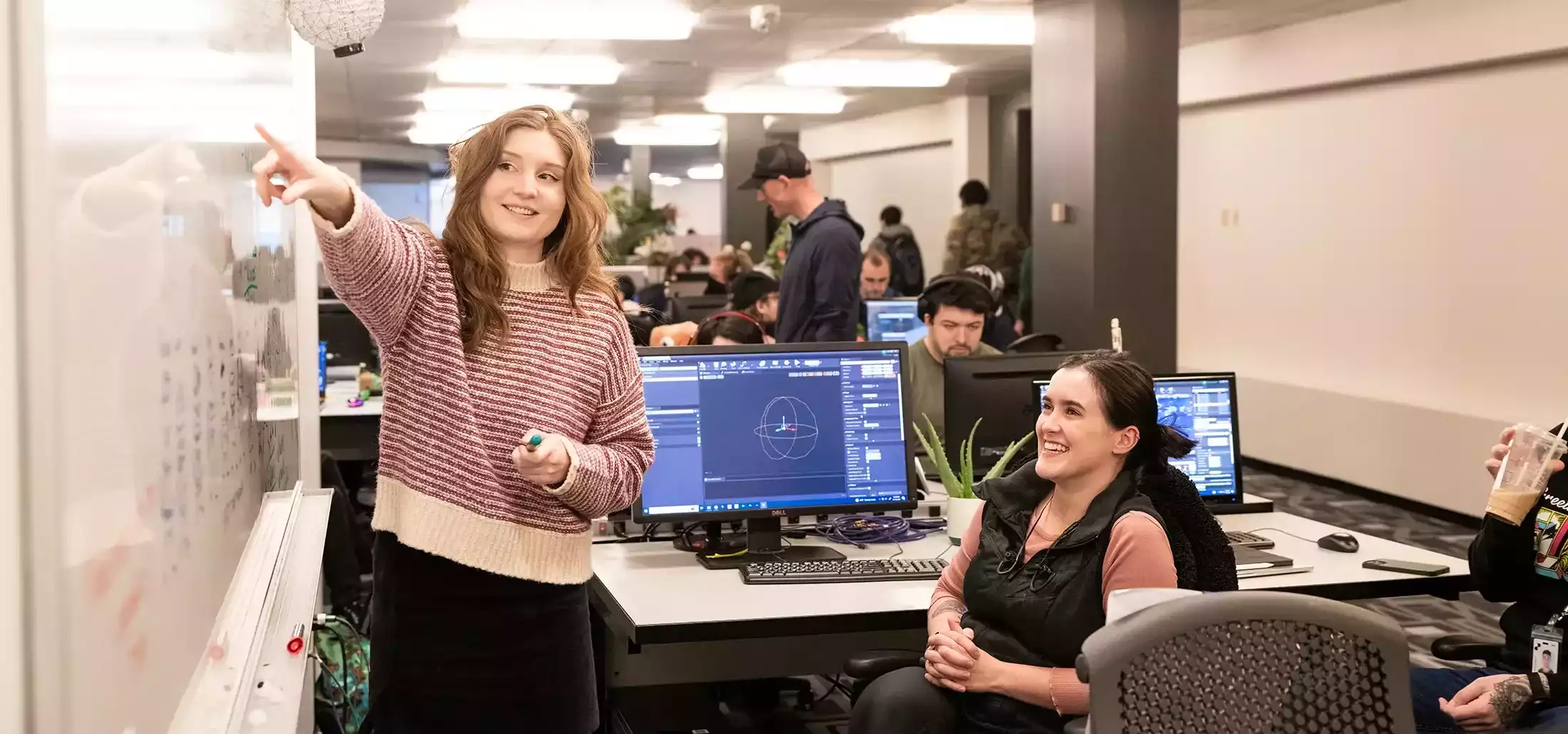
Focus Areas
Tools
Bridge the gap between the technical and the creative. Build tools like level editors to bolster your ideas and aid your designers.
Engine
Build the framework that powers game dev from start to finish. Your custom engine will enable a high level of control in every aspect of development.
Academic Concentrations
Your Degree, Your Way.
Take your education in the direction that best fits your goals. Define your coursework based on the topics that matter to you most by picking one of seven optional specializations.
Artificial Intelligence
Physically‑based Simulation
Image Processing
Databases and Networks
Machine Learning
Sound Synthesis
Digital Signal Processing
Look over this list of programming languages and software you’ll use for video game development throughout the program.
- C, C++, C#
- Git
- Visual Studio
- Python
- PyCharm
- SQL - Structured Query Language
- Unity
- Unreal
Our students are passionate, and our game team interviews bring their development stories to the forefront.
Find Out What Makes Us Different
Chat directly with a student ambassador or tune into an online info session — there’s always a way to learn more about DigiPen.
Curriculum
Instructors with Industry Insight.
From your first day of class to the day of your commencement, our renowned faculty and network of diverse professors have curated your academic progression to transition you into the workforce with ease and confidence.
Featured Courses
A small selection of fundamental courses included within all our computer science degree programs.
- CS 120 High-Level Programming I
- CS 230 Game Implementation Techniques
- MAT 140 Linear Algebra and Geometry
Our instructors come from rich and diverse backgrounds, and these are just some of the companies they’ve made their mark on.
- Nintendo Software Technology
- Xbox Game Studios
- Amazon
- Electronic Arts
- Lucasfilm Games
- Crystal Dynamics
- Activision
- Wizards of the Coast
- Wargaming
- Bungie
